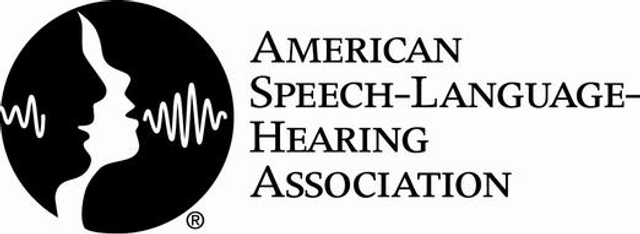American Speech–Language–Hearing Association

American Speech–Language–Hearing Association

The American Speech–Language–Hearing Association (ASHA) is a professional association for speech–language pathologists, audiologists, and speech, language, and hearing scientists in the United States and internationally. It has more than 197,856 members and affiliates.
The mission of the American Speech–Language–Hearing Association is to promote the interests of and provide the highest quality services for professionals in audiology, speech–language pathology, and speech and hearing science, and to advocate for people with communication disabilities.
The association's national office is located at 2200 Research Boulevard, Rockville, Maryland. The organization also has an office on Capitol Hill.
Arlene Pietranton is currently serving as the association's executive director.
History
ASHA was founded in 1925 as the American Academy of Speech Correction. The current name was adopted in 1978.
ASHA conference
The 2014 ASHA conference was held in Orlando, Florida from November 20–22.
The 2017 ASHA conference was held in Los Angeles, California from November 9–11.
Council for Academic Accreditation
The Council for Academic Accreditation in Audiology and Speech-Language Pathology (CAA) is the accreditation unit of the ASHA. Founded over 100 years ago by American universities and secondary schools, CAA established standards for graduate program accreditation that meet entry-level preparation in the speech and hearing field.[1] Accreditation is available for graduate programs with a master's degree in Speech-Language Pathology or clinical doctoral program in audiology.[2]
ASHA membership benefits
Professionals of Communication Sciences and Disorders (CSD) can become members of ASHA. These professionals include audiologists, speech-language pathologists, and speech-language-hearing scientists. As of December 31, 2017, there are more than 197,856 members and affiliates of ASHA.[3] Opportunities ASHA membership brings include access to publications associated with ASHA, to continuing education programs through ASHA, to a platform to network with other CSD professionals, to career-building tools, and to money-saving programs.[4]
Special Interest Groups (SIGS)
ASHA sponsors special interest groups (SIGS) within the organization as a means of promoting community and learning in more specialized topics. As of 2016, ASHA has 19 established Special Interest Groups (SIG). These have been added through the years. ASHA members can be a SIG Affiliate of any number of SIGS, with each affiliation requiring nominal yearly dues. The 19 SIGS are:
SIG 1: Language Learning and Education [27]
SIG 2: Neurogenic Communication Disorders [28]
SIG 3: Voice and Voice Disorders [29]
SIG 4: Fluency and Fluency Disorders [30]
SIG 5: Craniofacial and Velopharyngeal Disorders [31]
SIG 6: Hearing and Hearing Disorders: Research and Diagnostics [32]
SIG 7: Aural Rehabilitation and Its Instrumentation [33]
SIG 8: Audiology and Public Health [34]
SIG 9: Hearing and Hearing Disorders in Childhood [35]
SIG 10: Issues in Higher Education [36]
SIG 11: Administration and Supervision [37]
SIG 12: Augmentative and Alternative Communication [38]
SIG 13: Swallowing and Swallowing Disorders (Dysphagia) [39]
SIG 14: Cultural and Linguistic Diversity [40]
SIG 15: Gerontology [41]
SIG 16: School-Based Issues [42]
SIG 17: Global Issues in Communication Sciences and Related Disorders [43]
SIG 18: Telepractice [44]
SIG 19: Speech Science [45]